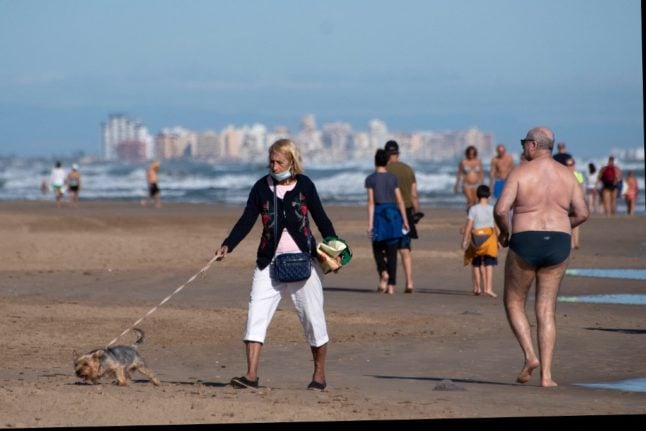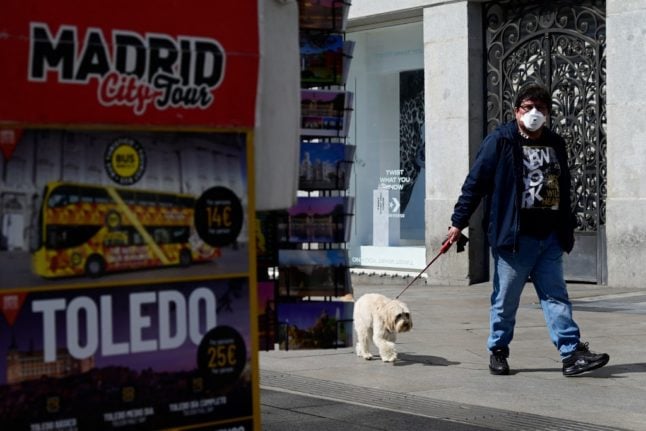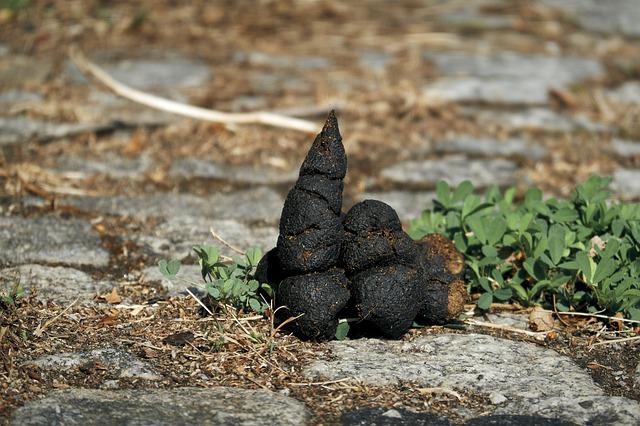Spain is a nation of dog lovers.
According to the country’s National Institute of Statistics (INE), 40 percent of Spanish households have a dog.
In fact, believe it or not, the Spanish have more dogs than they do children.
While there are a little over 6 million children under the age of 14 in Spain, there are over 7 million registered dogs in the country.
But one bugbear of many foreigners in Spain is that there’s often a lot of dog mess in the streets, squares and parks.
The latest estimates suggest it’s as much as 675,000 tonnes of doodoo that has to be cleaned up every year in Spain.
Many dog owners in Spain carry around a bottle of water mixed with detergent or vinegar to clean up their dog’s urine and small plastic bags to pick up number twos.
And yet, many owners seem to either turn a blind eye to their pooches’ poo or somehow miss that their pets have just pooed, judging by the frequency with which dog sh*t smears Spanish pavements.
So how true is it that Spain has a dog poo problem? Is there actually more dog mess in Spain than in other countries, and if not, why does it seem that way?
One contextual factor worth considering when understanding the quantity of caca in Spain’s calles is how Spaniards themselves actually live.
When one remembers that Spaniards mostly live in apartments without their own gardens, it becomes less surprising that it feels as though there’s a lot of dog mess in the streets. Whereas around 87 percent of households in Britain have a garden, the number in Spain is below 30 percent.
Simply put, a nation of dog lovers without gardens could mean more mess in the streets.
Whereas Britons often just let their dogs out into their garden to do their business, or when they can’t be bothered to take them for a walk even, Spaniards have to take them out into the street, unless they’re okay with their pooches soiling their homes.

Doggy dirt left in the streets is most certainly not a Spain-specific problem either, but rather an urban one found around the world.
In recent years, there have been complaints about the sheer abundance of canine faecal matter left in public spaces in Paris, Naples, Rome, Jerusalem, Glasgow, Toronto, London, San Francisco and so on.
READ ALSO: Why do some Spanish homes have bottles of water outside their door?
Unfortunately, there hasn’t been a worldwide study to shed light on which cities and countries have the biggest ‘poo-blem’, with the available investigations mainly centred on individual nations, such as this one by Protect my Paws in the US and UK.
And while it may be more noticeable in Spain than in some countries, it doesn’t mean the Spanish are doing nothing about it.
In fact, Barcelona has been named the third best city in Europe for dealing with the problem, according to a study by pet brand Tails.com.
Although Barcelona’s score of 53/80 was significantly lower than many British cities (Newcastle scored 68/80 and Manchester 66/80, for example) its hefty fines of €1,500 for dog owners caught not cleaning up after their canine friends might be a reason.
And some parts of Spain take it even more seriously than that.
In many Spanish regions doggy databases have been created to catch the culprits. Over 35 Spanish municipalities require dog owners to register their pets’ saliva or blood sample on a genetic database so they can be traced and fined, if necessary.

This DNA trick started earlier in Spain than in many other countries; the town of Brunete outside of Madrid kicked off the trend in 2013 by mailing the ‘forgotten’ poo to neglectful owners’ addresses. Some municipalities have also hired detectives to catch wrongdoers.
So it’s not as if dog poo doesn’t bother Spaniards, with a 2021 survey by consumer watchdog OCU finding that it’s the type of dirt or litter found in the streets than bothers most people.
READ ALSO: Clean or dirty? How does your city rank on Spain’s cleanliness scale?
It’s therefore not a part of Spanish culture not to clean up after dogs, but rather a combination of Spain’s propensity for outdoor and urban living, the sheer number of dogs, and of course the lack of civic duty on the part of a select few. Every country has them.
On a final note, not all dog owners in Spain who don’t clean up after their pooches can be blamed for doing it deliberately, but it’s certainly true that looking at one’s phone rather than interacting with your dog, or walking with your dog off the leash (also illegal except for in designated areas) isn’t going to help you spot when your pooch has done its business.
Article by Conor Faulkner and Alex Dunham



 Please whitelist us to continue reading.
Please whitelist us to continue reading.
I spend a lot of time in both Ireland & Spain. I’m not a dog owner but I like walking. I would say from casual observation that the two countries are probably equal in this regard so no, I don’t think Spain is any worse or better than Ireland. Great to see attention being drawn to this problem. Open disapproval from the public can shame owners into doing the right thing. It worked well for the litter problem. Usually it’s just down to carelessness and lack of attention.